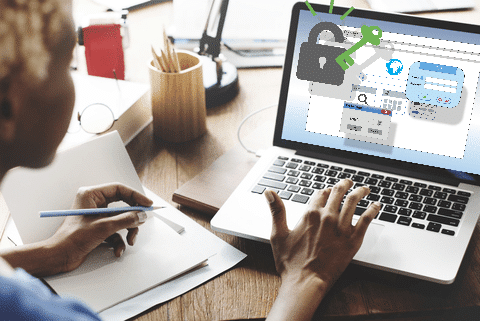In today’s digital age, where technology has revolutionized the healthcare industry, healthcare professionals must prioritize online safety and security. As we celebrate Internet Safety Month, Think Anew is here to provide you with essential tips and best practices to protect your sensitive data and maintain a secure online presence. So, let’s dive into internet safety and discover how to safeguard yourself and your patients’ information.
1. Protecting Patient Privacy:
As a healthcare professional, safeguarding patient privacy is paramount. Adhere to HIPAA regulations and take the following steps to maintain patient confidentiality:
- Ensure your devices, such as laptops and smartphones, are encrypted and password protected.
- Use secure communication channels, such as encrypted email or secure messaging platforms, when exchanging patient information.
- Avoid discussing patient details in public spaces or over unsecured Wi-Fi networks.
2. Secure Password Practices:
Strong passwords act as the first line of defense against unauthorized access. Implement these practices to fortify your online accounts:
- Create unique, complex passwords for each account and consider using a reputable password manager to store them securely.
- Opt for longer passwords with a mix of uppercase and lowercase letters, numbers, and symbols.
- Multi-factor authentication (MFA) wherever available to provide an extra layer of security.
3. Beware of Phishing Attacks:
Phishing attacks continue to be a significant threat. Stay vigilant and educate yourself on how to recognize and avoid them:
- Be wary of unsolicited emails, messages, or calls requesting sensitive information. Verify the sender’s identity before sharing any personal or confidential data.
- Avoid clicking on suspicious links or opening attachments from unknown sources. Instead, hover over links to verify their destination before clicking.
- Report any suspicious emails or phishing attempts to your IT department or security team.
4. Keep Software Updated:
Regularly updating your software is crucial for maintaining a secure digital environment. Follow these steps:
- Keep your operating system, antivirus software, web browsers, and applications updated with the latest security patches.
- Enable automatic updates whenever possible to ensure you have the latest protection against vulnerabilities.
5. Educate and Train Staff:
Incorporate regular training and education sessions to empower your healthcare staff to make informed decisions regarding online security. Topics to cover may include:
- Recognizing phishing attempts and other social engineering tactics.
- Best practices for secure data sharing and communication.
- Strategies for maintaining strong passwords and implementing MFA.
Internet safety is an ongoing responsibility for healthcare professionals who handle sensitive patient information. By implementing the above tips and staying informed about the latest online threats, you can help protect yourself, your patients, and your organization from cyber risks. We are committed to supporting your journey towards a secure digital landscape at Think Anew. Don’t hesitate to contact our dedicated team for expert guidance and customized solutions tailored to the healthcare industry.
This Internet Safety Month let’s prioritize online security and ensure a safe digital environment for healthcare professionals and patients. Together, we can embrace the benefits of technology while maintaining the highest standards of privacy and data protection.
Stay safe, stay secure!
Are you looking for Managed IT Services for your long-term care facility or organization? Contact Think Anew today!
